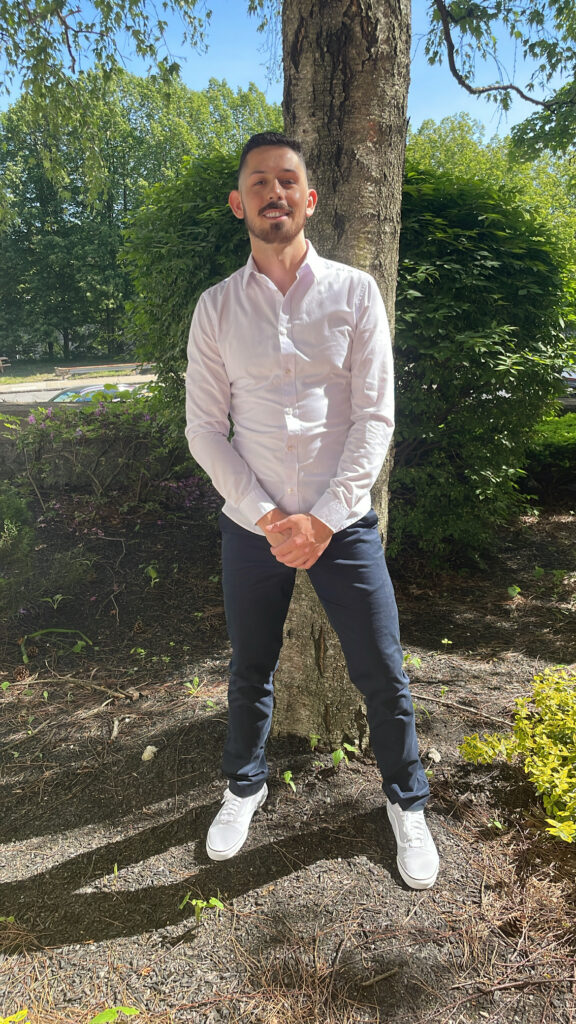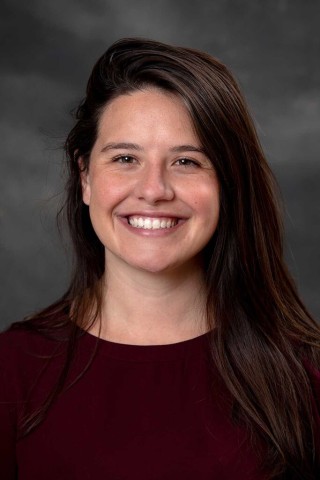Students, faculty present at Association for Behavior Analysis International’s convention
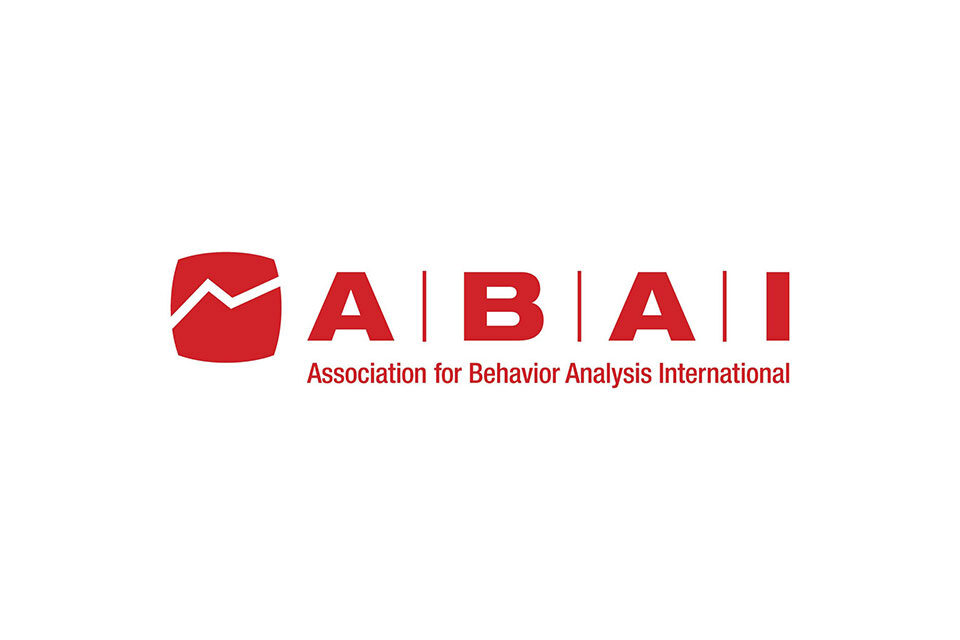
Students and faculty from Salve Regina’s undergraduate psychology program and the graduate applied behavior analysis (ABA) program have the opportunity to attend the annual Association for Behavior Analysis International (ABAI) 48th Annual Convention, which is being held in Boston, Massachusetts, on Saturday, May 28, through Monday, May 30.
Representatives from Salve Regina will present their research to professionals and other scholars. The ABAI 48th Annual Convention will allow Salve Regina undergraduates, graduates and faculty to interact with the international community of ABA in order to build relationships, gain experience and learn more about how they can help those in need of psychiatric aid.
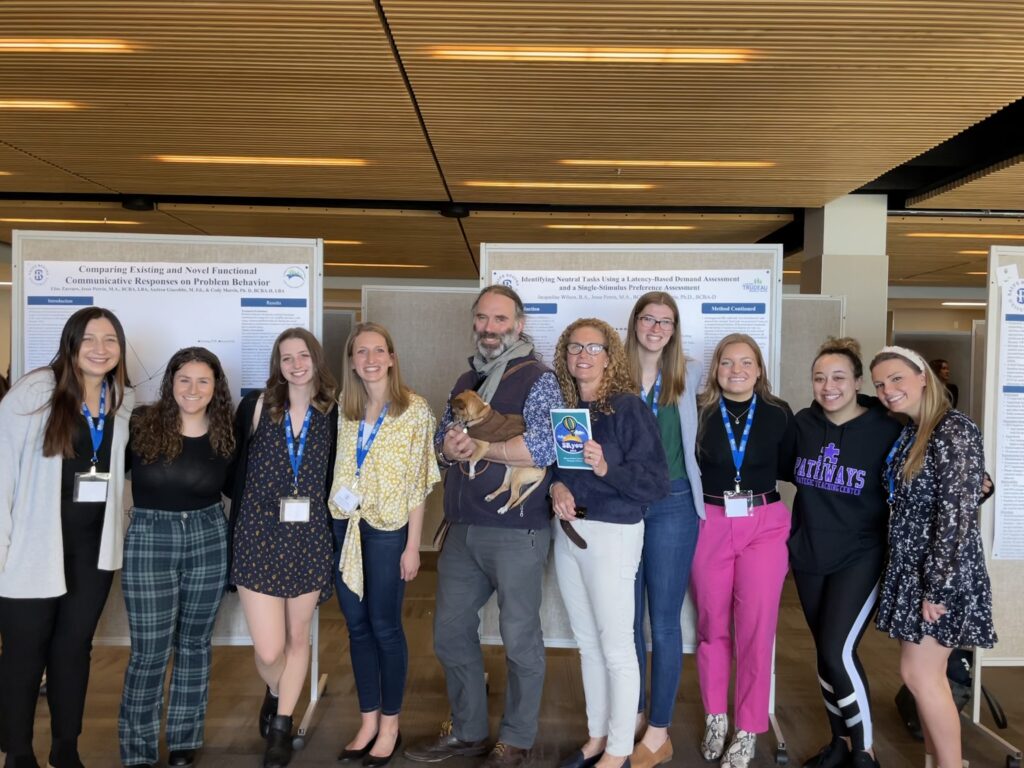
Pictured are a number of ABA graduate students who presented at the SRYou Student Exposition in March 2022, along with members of the Graduate Student Association (GSA).
A unique opportunity for undergraduates
Margaret Donovan ’23 is one of two undergraduates that will be presenting at the ABAI conference. She’ll be presenting alongside other Salve Regina students on “Defining the Practice of Behavior Analysis According to State Law.”
Like many, Donovan found herself drawn from her home in south Boston to Salve Regina because of its proximity to the ocean and the great feedback she heard from the community. Donovan’s interest in psychology stems from her history with mental health and observations she made about her family and friends’ experiences.
“I [wanted] to know more about what is happening to me and my friends, and maybe somewhere down the line be able to help people,” Donovan explained.
The students in the ABAI 48th Annual Convention will be making posters to highlight their research and explain their findings to researchers, practitioners, students and businesses from around the world. Jones explains how the ABAI conference is an excellent networking opportunity for students — in addition to being an impressive research experience and resume builder.
“By presenting at this conference, they disseminate information about how to be a better behavior analyst,” Donovan exclaimed. “They also have opportunities to meet other people with similar interests and job recruiters.”
Donovan’s research focused on psychology licensing in different states across the country. Along with her undergraduate partner Mackenzie Robichaud ’24, Donovan researched licensing documentation in 33 states and coded the information to find similarities.
“I think what’s most interesting is a lot of the states have almost the same exact wording,” Donovan commented. “A lot of them are almost word for word the same.”
Although Donovan thinks continuity in psychology licensing can be a good thing, some of the licensing process seems broad, and she believes that this might be more valuable to look further into for future research.
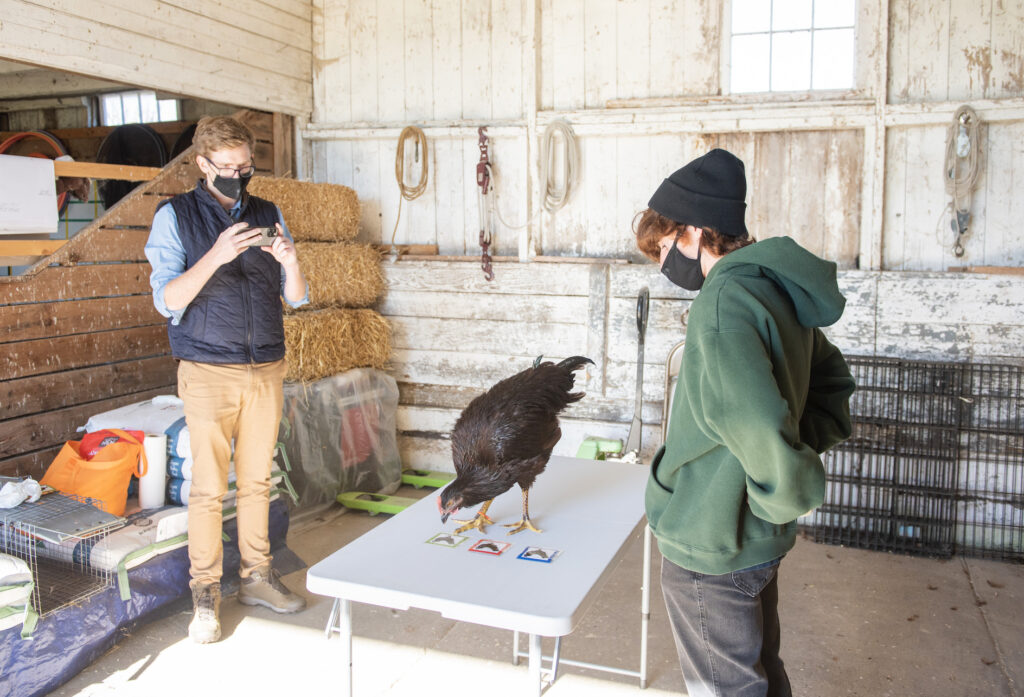
Dr. Cody Morris (left), the ABA graduate program director, has used chickens to drive home behavioral concepts.
Another step in the process for graduate students
Zachary Morais is halfway through the applied behavioral analysis graduate program. Growing up in Fall River, Massachusetts, Morais was familiar with Salve Regina and the positive reputation it held within his town.
“I’ve always wanted to come to Salve … it’s a big deal to go [here],” Morais admitted.
Morais went to the University of Massachusetts in Boston where he received his undergraduate degree in psychology. After graduation, Morais was looking for a way that he could treat children, because he knew he wanted to be involved with pediatrics.
Morais knew he wanted to work with children on the autism spectrum (AST) and those with developmental disabilities (DD). He was accepted to medical school twice prior to deciding to come to Salve Regina; however, when he discovered ABA, he knew it was something he needed to pursue.
“I was like, ‘Wow, I can treat these semi-psychiatric symptoms in children with AST and DD without medication? That’s it. That’s what I need to do,’” Morais recalled.
Morais explained that some people do not understand what ABA is and its intended purpose. The broader goal for him is to raise awareness and understanding for ABA as a field of study and as a practice.
“The opportunity to talk at the conference is just an opportunity to spread what we know,” Morais explained. “It seems to me that not everyone seems to know what [ABA] is or what it’s about, and that’s something I want to have a heavy hand in …. I think ABAI is a small step in that for me.”
Like Donovan, the graduate students are also presenting posters about the ABAI 48th Annual Convention. Morais’ research involved two types of treatment—DRA and DRO. These are two types of ways to teach skills that are acceptable and reduce behavior that shouldn’t. The focus is on figuring out which treatments still work when a behavior therapist makes a mistake or is not doing everything correctly.
“What we found is that one of the treatments still reduces problem behavior even if the tech doesn’t always do it right,” Morais explained. “So that was really interesting, because it can really guide practice when … a behavior analyst is writing a treatment plan and they want to pick between two treatments.”
Fulfillment and opportunity for faculty members
Dr. Stephanie Jones, assistant professor in the department of psychology, teaches graduate and undergraduate students in the field of applied behavior analysis at Salve Regina. She defined ABA as “the application of behavior-analytic principles to socially significant problems.”
Dr. Jones notes that ABA is a subfield of psychology that emphasizes the philosophy behind science’s ability to help people. The findings of ABA research emphasize that nobody is a lost cause and that people can change for happier and healthier lives.
Dr. Cody Morris, the ABA graduate program director, was also a significant faculty member involved in ABA research for the ABAI 48th Annual Convention. Dr. Jones and Dr. Morris aided their students by supervising their projects and meeting with them frequently to give them direct and adequate support for their research.
Dr. Jones explains that the convention is a chance for students to get their findings published. If they get the necessary feedback at the conference from professionals and experts in the field of ABA, they could move forward and submit it to a peer-review journal. Not only are students learning, gaining professional experience and networking, but they are establishing themselves within the community of ABA.
The ABAI conference is a chance for anyone to present if their application is approved, including Dr. Jones. However, university professors and professionals most often give talks or oral presentations that are attended by other professionals and doctoral students.
“All of the behavior-analytic faculty are speaking at the conference either in symposia during which they give a 20-minute presentation of their research alongside colleagues that do similar work or in panels during which they provide insight based on questions from the audience on a topic of interest,” Dr. Jones explained.
For her research this year, Dr. Jones focused on the extent to which researchers report how well their treatment actually went. She wanted to see how well the data supported how treatments and if researchers truly did a good job.
Representatives from Salve Regina will be presenting at the ABAI 48th Annual Convention in the following presentations:
- Dr. Stephanie Jones, Emma Grauerholz-Fisher, Jacqueline Wilson, Elizabeth Narvaez, Biance Ferrucci, Zachary Morais and Dr. Cody Morris: “A Practitioner’s Guide to Evaluating Treatment Integrity in Applied Settings.”
- Dr. Cody Morris will co-chair a panel discussion on: “Queering Our Science: How Behavior Analysts Can Work Toward LGBTQ+ Liberation.”
- Jocelyn McCormack, Jesse Perrin (Pathways) and Dr. Cody Morris: “The Effects of Functional Communication Training on Multiply-Controlled Problem Behavior.”
- Hanna Grey, Dr. Cody Morris and Pathways: “Assessment and Treatment of Challenging Behavior Maintained by Access to Restricted Interests.”
- Emma Grauerholz-Fisher: “An Assessment of the Prevalence of Feeding Difficulties in Children with Autism Spectrum Disorder.”
- Dr. Cody Morris and Pathways: “Comparing Existing and Novel Functional Communicative Responses on Problem Behavior.”
- Dr. Cody Morris, Emma Grauerholz-Fisher and Dr. Stephanie Jones will present an ABAI Expo Poster on Salve Regina’s graduate and undergraduate ABA programs.
- Dr. Stephanie Jones will chair a symposium on “Procedural Integrity: Current Practices and Areas for Improvement.”
- Dr. Stephanie Jones: “Interactive Effects of Treatment Type, Schedule Value and Treatment Integrity on Treatment Outcomes.”
- Dr. Stephanie Jones: “Perceived Barriers to Reporting Procedural Integrity Data in Behavior-Analytic Research.”
- Dr. Cody Morris will chair the DDA Sunday Poster Session in Exhibit Hall A.
- Elizabeth Narvez, Kaitlynn Jackson, Dr. Stephanie Jones and Dr. Cody Morris: “Demographic and Environmental Variables Reported In Functional Communication Training Evaluations Between 2011-2021.”
- Dr. Cody Morris will serve as discussant on: “Component Analysis of Behavior Management Used Within Parent-Child Interaction Therapy to Facilitate Verbalizations by Children With Developmental Disabilities.”
- Dr. Cody Morris will serve as discussant on: “Disability provider perspectives on sexuality: Evaluating the attitudes of behavior analysts and educators regarding the sexuality of neurodivergent individuals.”
- Dr. Cody Morris will serve as discussant on: “A literature review on Tolerance for Delay (TFD).”
- Emma Grauerholz-Fisher: “Reporting of Setting and Resources in the Treatment of Pediatric Feeding Disorders: Review and Recommendations.”
- Zachary Morais and Dr. Stephanie Jones: “Effectiveness of DRA and DRO Implemented at 80 Percent Integrity: A Human-Operant Investigation.”
- Biance Ferrucci, Jacqueline Wilson, Margaret Donovan ’23, Mackenzie Robichaud ’24 and Dr. Cody Morris: “Defining the Practice of Behavior Analysis According to State Law.”
- Heather Petrillo, Dr. Cody Morris and Pathways: “A Parametric Analysis of Condition Lengths in a TBFA.”
- Jacqueline Wilson, Dr. Cody Morris and Pathways: “Identifying Neutral Tasks Using a Latency-Based Demand Assessment and a Single-Stimulus Preference Assessment.”
- Dr. Cody Morris will chair a panel discussion on: “Suggestions for Establishing and Maintaining Research Productivity at Small Universities.”
Article written by student writer Anna K. Downes ’22

